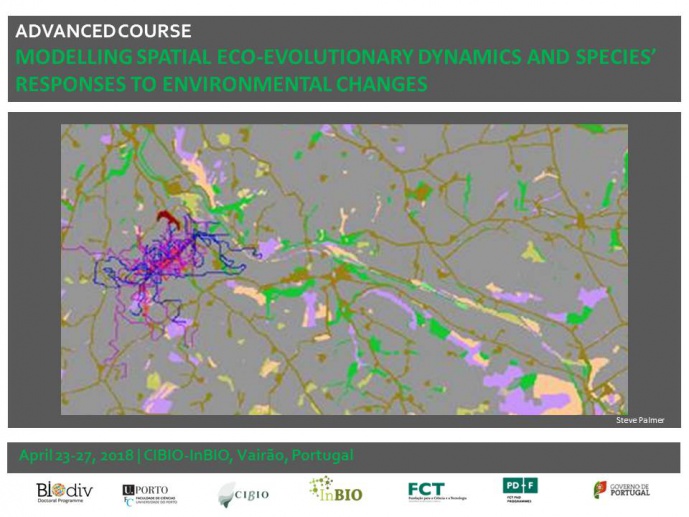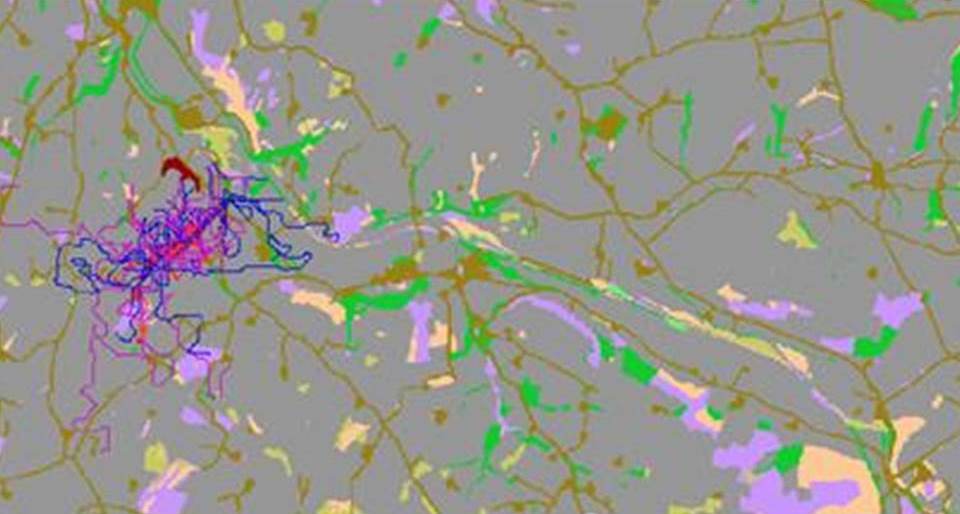ADVANCED COURSE: MODELLING SPATIAL ECO-EVOLUTIONARY DYNAMICS AND SPECIES’ RESPONSES TO ENVIRONMENTAL CHANGES


Steve Palmer
Rapid environmental changes are threatening biodiversity and exposing species to novel ecological and evolutionary pressures. The scientific community increasingly recognizes the need for dynamic mechanistic models integrating sufficient complexity both forecast the response of natural populations to drives of global change.
Using some illustrative examples, we will introduce a novel modelling platform, RangeShifter v2.0, which integrates complex population dynamics, dispersal behaviour, and evolutionary processes to simulate scenarios on spatially explicit landscapes. The software provides functionality for a wide variety of modelling applications ranging from applied questions (where it can be parameterized for real landscapes and species to compare alternative potential management intervention), to theoretical studies of species’ eco-evolutionary dynamics and responses to different environmental pressures.
RangeShifter v2.0 provides an important tool for facilitating the advancement of ecological theory on species’ spatial dynamics in response to environmental changes, and linking it directly to application in biodiversity conservation.
PROGRAMME
23th April
. Morning (9.00-13.00)
- Introduction to Modelling eco-evolutionary responses to global: an overview of different approaches and limitations
- Basic concepts: types of data sets
. Break
- Some pitfalls and limitations: Projecting species’ range expansion dynamics: sources of systematic biases when scaling up patterns and processes scaling up processes and patterns; taking into account stochasticity
. Afternoon (14.00-18.00)
- Presentation of Rangeshifter v2.0 platform: a review on different modules
- An example with illustrative data set
- How to start working on your own data set
24th April
. Morning (9.00-13.00)
- What is new on Rangeshifter v2.0: the genetic module
. Break
- Hands-on session
. Afternoon (14.00-18.00)
- Cases studies on Rangeshifter v2.0
- Hands-on session
26th April
. Morning (9.00-13.00)
- What is new on Rangeshifter v2.0: the genetic module
. Break
- Hands-on session
. Afternoon (14.00-18.00)
- Cases studies on Rangeshifter v2.0
- Hands-on session. Individual/team projects
27th April
. Morning (9.00-13.00)
- Presentation of individual/team projects
. Afternoon (14.00-18.00)
- Wrap-up session. General conclusions.
COURSE INSTRUCTORS
Justin Travis - Aberdeen University, Scotland
Steve Palmer - Aberdeen University, Scotland
Cristina García - CIBIO-InBIO I PLANTBIO
INTENDED AUDIENCE
The course will be open to a maximum number of 20 participants.
Requirements: Participants are advised to bring their own laptop and work with their own data sets. This application and its manual is freely available at http://onlinelibrary.wiley.com/doi/10.1111/2041-210X.12162/suppinfo.
75% of available student slots are reserved for BIODIV students. Priority will be given to:
• 1st year and other PhD students attending the BIODIV Doctoral Program;
• PhD students attending other courses;
• Other post-graduate students and researchers.
APPLICATIONS
Registration Deadline: March 30, 2018
Participation is free of charge for BIODIV students | 80 € (students) / 150 € (other participants).CIBIO-InBIO members will have an additional discount of 20%. Does not include lunch nor coffee breaks.
To apply, please send an e-mail accompanied by your short CV (max. two A4 pages) to post.graduation@cibio.up.pt. Please refer your academic status (PhD student, MSc Student, Other) and the institution to which you are affiliated. BIODIV students should also mention which year of their PhD they are in. If you are interested in more than one course, you need to send a separate application for each of them.
Please note that new rules apply for all BIODIV students.
